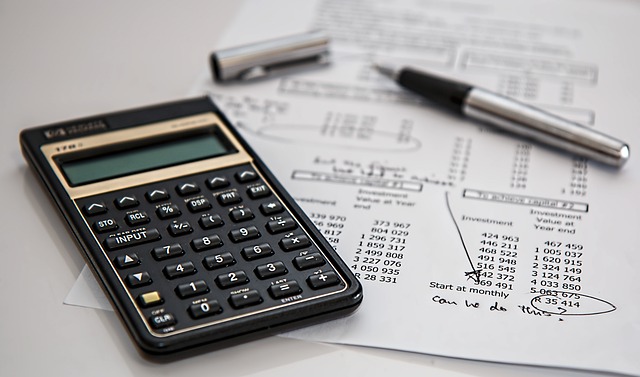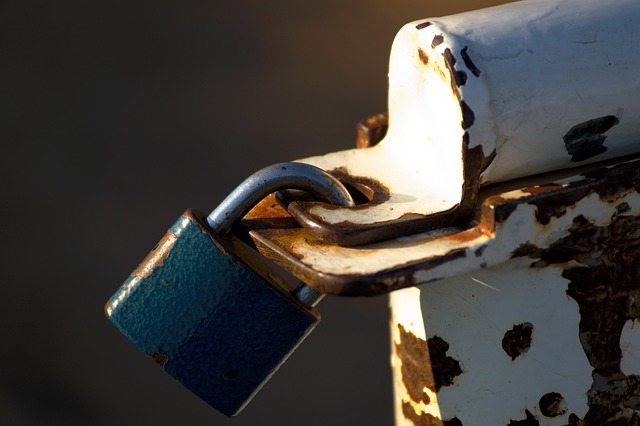Protecting your home is a fundamental aspect of securing your peace of mind, but true security extends far beyond the four walls that shelter you. It encompasses the myriad items that fill your living spaces and give them character—your personal property. This article delves into the importance of integrating personal property coverage into your homeowners or renters insurance policy to achieve comprehensive protection. We will explore how this addition goes beyond safeguarding the structure of your home, providing a safety net for your belongings against unexpected events. Furthermore, we’ll examine the role of liability coverage within these policies, ensuring you are not financially burdened should someone be injured on your premises or if you inadvertently damage another’s property. Understanding your personal property insurance is key to ensuring that, in the event of a loss, you can recover without prohibitive out-of-pocket costs. Join us as we navigate the nuances of homeowners and renters insurance, focusing on replacement cost insurance for your personal items, and offer practical tips to evaluate your property damage protection and loss of use insurance coverage—all to guarantee that your worldly possessions are as secure as your residence.
- Navigating Personal Property Coverage within Homeowners and Renters Insurance Policies
- Comprehensive Protection: The Role of Personal Belongings Insurance
- Understanding Replacement Cost Insurance for Your Personal Items
- Beyond Physical Structure: Liability Coverage in Your Policy
- Ensuring Adequate Coverage: Tips for Evaluating Your Property Damage Protection and Loss of Use Insurance
Navigating Personal Property Coverage within Homeowners and Renters Insurance Policies

Personal property coverage is a vital component of both homeowners and renters insurance policies, offering robust protection for your personal belongings beyond the confines of the physical structure insured. This coverage ensures that items such as electronics, furniture, clothing, and other valuables are safeguarded against loss due to events like fire, theft, or natural disasters. Homeowners insurance typically includes personal property coverage, which can reimburse you for the replacement cost of your belongings if they are damaged or stolen, without considering depreciation. Renters insurance also offers this protection, providing peace of mind for those living in rented accommodations who may not be responsible for the building’s structure but still need to protect their possessions within it.
Furthermore, comprehensive personal property coverage often extends to include liability protection. This aspect is crucial as it provides financial compensation if someone is injured on your property or if you unintentionally damage someone else’s property, helping to cover legal fees and potential settlements or medical expenses. Additionally, loss of use insurance, which is also part of personal property coverage, ensures that you have alternative accommodation and living expenses covered if your home becomes uninhabitable due to an insured event. This means that not only are your personal belongings protected, but you are also supported with additional living expenses until you can return to your residence, ensuring minimal disruption to your life. Understanding the specifics of your policy and the extent of this coverage is essential to ensure that you have adequate protection and are not faced with unexpected costs following a loss. It’s advisable to regularly review your insurance policy, make an inventory of your belongings, and adjust your coverage as necessary to keep pace with life’s changes.
Comprehensive Protection: The Role of Personal Belongings Insurance

Personal property coverage plays a vital role in your overall insurance strategy, complementing homeowners or renters insurance to offer comprehensive protection. This aspect of your policy is designed to shield your personal belongings from unexpected events such as theft, fire, or natural disasters. Unlike standard policies that may focus on the physical structure of your dwelling, personal property coverage ensures that the contents within—your furniture, electronics, clothing, and other items of value—are also protected. This is particularly important given the sentimental and monetary value these belongings hold.
Furthermore, a robust personal property insurance policy often includes replacement cost insurance, which guarantees that you will receive funds to replace your lost or damaged items at their current value, rather than the depreciated amount. This feature is invaluable, as it allows for like-for-like replacements without the financial strain of out-of-pocket expenses. In addition to protecting your possessions, personal property coverage typically encompasses liability coverage. This aspect safeguards you financially if someone is injured on your property or if accidental damage occurs to another person’s belongings. It provides a safety net for potential legal costs and medical expenses associated with such incidents. With comprehensive personal property coverage, homeowners and renters alike can rest assured that they are not only protecting their tangible assets but also safeguarding themselves against unforeseen liabilities, thereby ensuring a more secure and comfortable living environment. Loss of use insurance further complements this protection by covering additional living expenses if your home becomes uninhabitable due to an insured event, ensuring continuity in your lifestyle during the repair or rebuilding process.
Understanding Replacement Cost Insurance for Your Personal Items

When considering personal property coverage within your homeowners or renters insurance policy, it’s important to grasp the nuances of replacement cost insurance for your personal items. This type of coverage is designed to offer a financial safety net by compensating you based on the current replacement value of your belongings rather than their actual cash value at the time of loss. For instance, if a five-year-old television is destroyed, replacement cost insurance would reimburse you for the cost to purchase a new television today, taking into account depreciation that has occurred over time. This ensures that you can replace your personal belongings without financial hardship, maintaining your lifestyle post-loss.
Additionally, under this coverage, liability protection is often included, extending your safeguard beyond the tangible items within your home. Liability coverage typically provides funds for legal defense and settlement costs if someone sustains an injury on your property or if you inadvertently cause damage to another’s belongings. This component of personal property insurance is crucial, as it can safeguard your financial well-being against potential claims or lawsuits. In the event that a covered loss makes your home temporarily uninhabitable, loss of use insurance may also be activated, offering additional living expenses to help maintain your standard of living during the restoration period. Understanding these aspects of personal property coverage within your homeowners or renters policy is key to ensuring that you have comprehensive protection for both your personal items and your financial stability in the face of unexpected events.
Beyond Physical Structure: Liability Coverage in Your Policy

Personal property coverage within homeowners or renters insurance policies is a critical component that extends protection beyond the physical structure of your dwelling. This type of coverage ensures that your personal belongings, ranging from electronics to jewelry and furniture, are safeguarded against various perils such as fire, theft, or natural disasters. It’s not just about securing your possessions; it’s also about having peace of mind knowing that the tangible items you cherish are insured for their full replacement cost. This means that in the event of a loss, you can receive funds to replace your belongings with items of similar kind and quality, rather than settling for the depreciated cash value.
In addition to protecting your personal property, these policies often include liability coverage, an essential aspect that offers financial protection should someone be injured on your property or if you unintentionally cause damage to another person’s belongings. Liability insurance can cover medical expenses, legal fees, and compensation for the damaged property, thereby safeguarding your assets from potential lawsuits. This form of coverage is invaluable, as a single incident could lead to significant out-of-pocket costs without it. Moreover, loss of use insurance, which may be included or added as an endorsement, can cover additional living expenses if your home becomes uninhabitable due to an insured event. This ensures that you have a place to stay and maintain your standard of living during the time your property is being repaired or rebuilt. Understanding these aspects of your insurance policy is key to ensuring you have comprehensive protection for both your personal property and your financial well-being.
Ensuring Adequate Coverage: Tips for Evaluating Your Property Damage Protection and Loss of Use Insurance

When considering your personal property coverage within your homeowners or renters insurance policy, it’s crucial to evaluate the extent of protection that aligns with your belongings’ actual value. Start by taking a comprehensive inventory of your personal belongings, documenting each item with a description, purchase date, and value. This step is pivotal in determining if you have adequate coverage under replacement cost insurance. It ensures that in the event of a loss, you receive funds sufficient to replace your items with new ones, rather than their depreciated cash value. Additionally, scrutinize your policy’s property damage protection limits to ensure they are commensurate with potential repair or replacement costs for your home. This aspect of coverage is not only about safeguarding your personal property but also about maintaining the integrity of your living space against unforeseen events like fires, storms, or thefts.
Furthermore, liability coverage is an integral component of a robust insurance policy. It offers financial protection should someone sustain an injury on your property or if you inadvertently damage another’s property. The coverage typically includes medical payments, legal fees, and compensation for the injured party. For renters, personal belongings insurance often serves as the equivalent to homeowners’ property damage protection. It’s vital to review this aspect of your policy to ensure it covers all your valuables, including electronics, jewelry, and other high-value items that might not be fully covered under standard policies. Additionally, loss of use insurance is a critical feature that covers additional living expenses if you are unable to inhabit your home due to damage from an insured event. This ensures that you can maintain your standard of living without financial strain, as alternative housing arrangements can quickly escalate costs. Regularly revisiting and updating your coverage with these considerations in mind will help safeguard both your personal property and financial well-being against the unpredictable nature of property damage events.
When it comes to securing your assets and ensuring peace of mind, integrating personal property coverage within your homeowners or renters insurance is a prudent step. This article has outlined the importance of understanding and adequately insuring your personal belongings through comprehensive policies. From safeguarding your possessions against unforeseen events to providing liability coverage for injuries on your premises, such insurance serves as a vital shield. It also encompasses replacement cost insurance, which guarantees that you can replace lost or damaged items at their current value. Furthermore, understanding the nuances of loss of use insurance ensures that you’re prepared should you need alternative living arrangements due to uninhabitable conditions caused by an insured event. In essence, a well-rounded policy is not just about protecting the physical dwelling but also about safeguarding your lifestyle and financial security against the unexpected. With the insights provided in this article, you are now better equipped to evaluate and enhance your property damage protection and overall insurance coverage.



